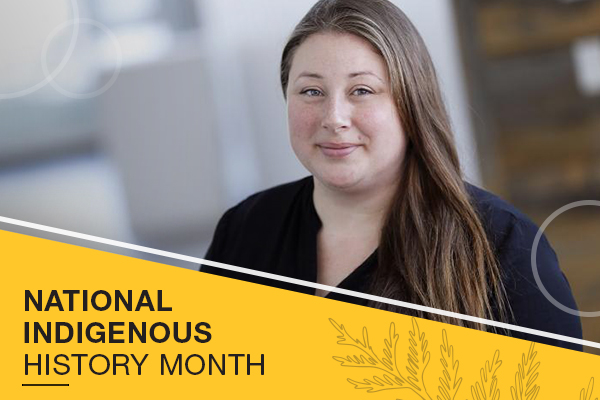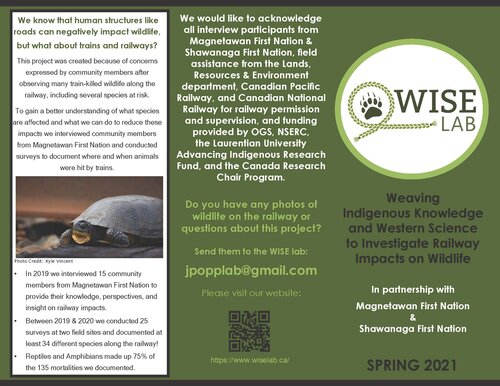 Weaving together Indigenous knowledge systems and Western science to protect the environment is what drives the research of Dr. Jesse Popp in the University of Guelph’s School of Environmental Sciences.
Weaving together Indigenous knowledge systems and Western science to protect the environment is what drives the research of Dr. Jesse Popp in the University of Guelph’s School of Environmental Sciences.
Popp, holder of the Chair in Indigenous Environmental Science at U of G, leads a field of study that seeks to braid various knowledge systems to improve environmental and ecological science and to better safeguard Earth from harmful practices.
“Although there is a plurality of ways in which the world and environment are read or interpreted, colonial forces and associated power imbalances prioritize some worldviews and knowledge systems, like Western or Eurocentric paradigms, over others,” she said. “Indigenous knowledge systems are diverse and have been considered an intellectual twin to Western science.”
Popp is a member of the Wiikwemkoong Unceded Territory located on eastern Manitoulin Island. The territory is made up of Ojibwa, Odawa and Potawatomi people under the Three Fires Council.
A leading proponent of collaborative research, Popp is the principal investigator of U of G’s Wildlife, Indigenous Science, Ecology Lab, or WISE Lab. The lab fosters research partnerships between Indigenous communities and organizations, conservation groups, federal and provincial governments, and universities across Canada to address issues identified by Indigenous community partners as important to their lives.
Among the key areas of investigation are cultural keystone species, climate change, declining moose populations and railway ecology.
“Although the research associated with the WISE Lab does focus on the preservation of biodiversity and Indigenous culture, our aim is to bring people together in collaborative environmental research in ways that are respectful of all cultures and ways of knowing,” she said.
As species and biodiversity loss accelerates across the planet, ecological and cultural integrity become further jeopardized, she said.
Weaving knowledge systems together refers to a process through which multiple types of knowledge are equitably brought together to enable the reciprocal exchange of understanding for mutual learning and application, said Popp. WISE Lab is dedicated to enhancing this process and creating novel interdisciplinary research approaches.
“With community-led research focused on important issues identified by our Indigenous community partners, we work together, braiding knowledge systems to understand and address anthropogenic impacts – such as climate change, railways, roads, harvest – on wildlife and Indigenous peoples. We must work together to address these issues that face all our relations – human and non-human.”
 She explored those ideas in a recent study in Ecological Solutions and Evidence, published by the British Ecological Society.
She explored those ideas in a recent study in Ecological Solutions and Evidence, published by the British Ecological Society.
The study introduces a process that is underway to understand how and where studies have woven IKS and Western sciences together and seeks to learn about frameworks and processes used and identify best practices.
Indigenous and Western ways of knowing can provide detailed empirical information about natural changes and relationships within the environment, Popp said. But they take very different approaches to understanding the world.
Calls for interdisciplinary approaches to environmental research are longstanding, but in recent times the movement to weave Indigenous knowledge systems and Western sciences together has grown, Popp said. Together, multiple knowledge systems in environmental research can improve biodiversity conservation.
“With unique, yet often complementary ways of knowing, Indigenous and Western knowledge systems can come together in ways that uphold respective integrities to better understand environmental change and help solve the monumental environmental issues facing us all today,” Popp said.
Strong and effective collaborations need to be founded in ethical spaces that equally respect the ways of knowing and being of all those involved, she added.
“It is important to maintain the integrity of Indigenous ways of knowing while working toward inclusion and diversity.”
Contact:
Dr. Jesse Popp
poppj@uoguelph.ca
To prepare new and returning students for the fall, we will be sharing information on new programs, student experiences and inspiring stories. Visit the Welcome Home page to learn more about what makes U of G stand out.